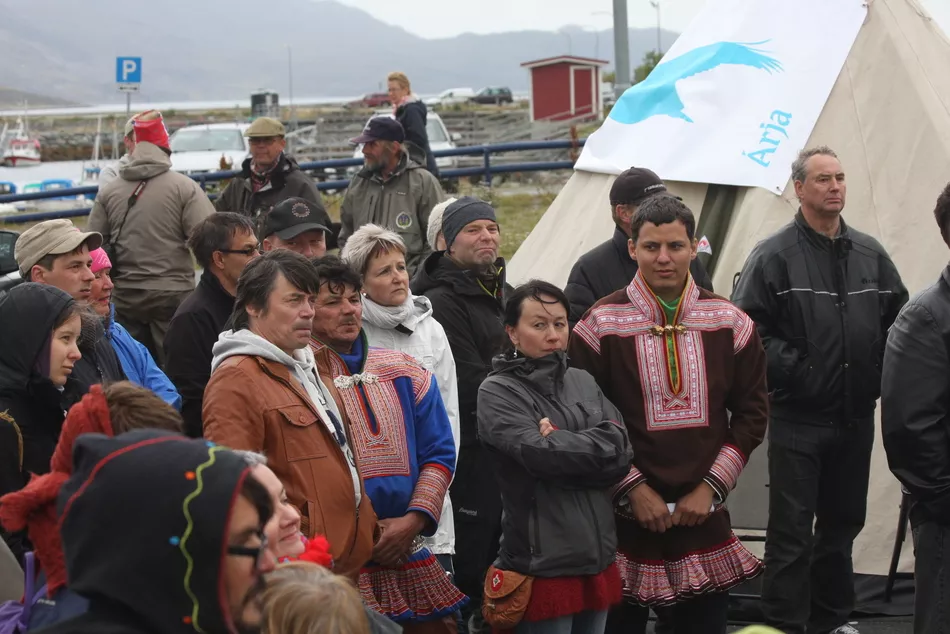
Norwegian mining company Nussir ASA is pursuing a copper mine in the municipality of Kvalsund in northern county of Finnmark. If approved, the mine would annually dump an estimated 2 million tonnes of mine waste into the Repparfjord and seriously disrupt the reindeer herding of indigenous Sámi people.
Marine life at risk
The Norwegian government has classified the Repparfjord as a National Salmon Fjord, due to the importance of its Atlantic salmon spawning grounds. Coastal fisherman, including Sámi sea fisherman are deeply concerned the project will smother habitat critical to salmon, cod and other marine life. Many Sámi fear the Nussir mine will destroy reindeer grazing areas and disrupt their traditional lifestyle. Sami leadership have steadfastly opposed the project, refusing to grant consent during the government-led consultation process.
Although fjords are at the heart of its identity and economy, Norway is the only country in Europe currently allowing mining companies to dump solid mine waste directly into open water bodies. The fight to stop this mine has unified young people, environmentalists, indigenous people, local fisherman, and marine experts.
On the brink of destruction
Mine waste dumping in the Repparfjord during a brief period in the 1970s nearly wiped out it’s excellent fishing grounds, which has just recently recovered. Nussir’s mine is expected to dump 20 times more waste into the fjord. Despite this, the Norwegian government has granted Nussir the final permits it needs to begin operations, turning down a slew of appeals by local fishermen, Sami people and environmental groups.
Youth activists joined local fisherfolk and Sámi Indigenous people on the banks of the Repparfjord in the summer of 2021 to block Nussir’s construction of the mine. Their presence got the attention of Aurubis AG, Europe’s largest copper producer, who announced it was terminating its offtake agreement with Nussir due to concerns about sustainability.
Grandfathered-in pollution
In January 2018, the Norwegian Government placed a 4-year ban on the issuing of new permits to dump mine waste in the ocean recognizing the economic and environmental consequences of the practice. The ban did not impact Nussir’s mine, which was already permitted to dump. Unfortunately, the ban was lifted in 2021 when a new government was elected.
What Are Tailings?
Tailings are the sludge left once the mineral is extracted from the ore. They contain crushed rock, processing chemicals and naturally occurring elements that become toxic when exposed to air or water. This toxic cocktail settles on and smothers the seafloor, killing everything that lives there. Tailings can also spread, contaminating other areas and destroying coral reefs and other habitat. Mining companies can avoid this dangerous waste disposal option in favor of safer, less destructive methods on land. However, it is important that land-based waste storage facilities have strong safety standards and appropriate oversight.
